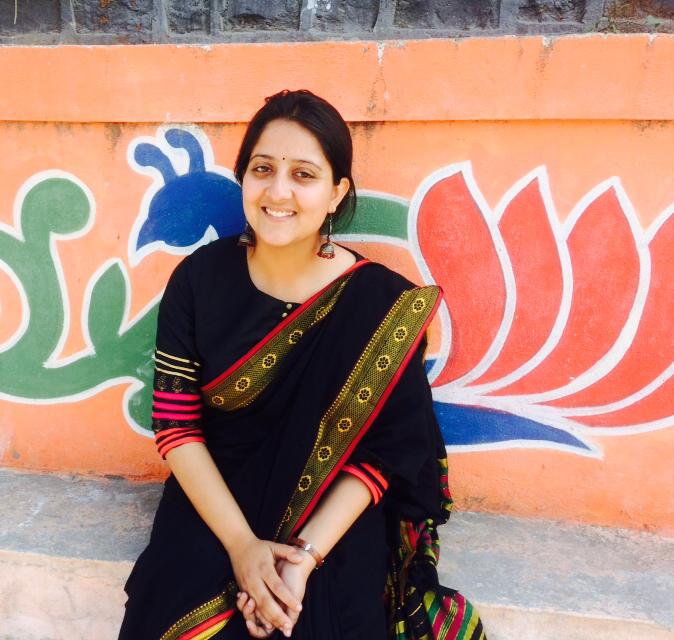Understanding State Capabilities
The experiential learning programme allows development professionals and students to unpack India’s complicated governance structure through which public services such as education, health, nutrition and sanitation are delivered. Its primary objective is to build a community of practitioners and impactful leaders by
● Equipping them with evidence-based research
● Bridging the gap between theory and practical implementation
● Enabling them to build tools to effectively engage with the government
● Reflect on their role in making governance responsive
This course is offered in online as well as offline mode. To know more about the offline course, download the concept note here. You can learn more about the online course here.
What is the course about?
Public systems across sectors in India are inadequate, and the lack of accountability is a binding constraint. The government attempts to deliver on its commitment to a transparent, decentralized and well-functioning state. Still, public authorities seem to lack both – the capacity (technical and administrative) and ability (political and institutional) to deliver public goods, characterizing India’sIndia’s state capabilities as weak. This cavity in the system leaves a significant need to enhance the competency of administrative structures and human resources.
‘Understanding State Capabilities’ places state capability at the front of the debate on governance and accountability. By focusing on the capability gap in the governance structure, the course equips participants to understand the root causes of administrative failure.
This knowledge should enable them to find answers to the question of what can be done to improve state capability in India and design interventions to acknowledge the holistic need to address state capacity in design and management.
The course dives into the following themes:
- Theory of decentralization and its influence on India’s governance model.
- Tools of public administration, which will explain the workings of Indian state bureaucracy, particularly at the level of implementation.
- Tools of public finance, which will constitute learning about plans, budgets, and fund flows in key social sector programmes.
- Tools of social accountability and how their effective application can strengthen the people’s voice to demand accountability from the government.
By the end of the course, the participants will be able to:
- Build a nuanced understanding of government structures.
- Learn why state capability matters in service delivery implementation.
- Assess weaknesses and gaps in service delivery implementation based on the foundation of their understanding of state capability.
- Learn about the importance and relevance of social accountability.
- Apply a systems thinking approach to building state capability at the frontline.
The course has been conceptualised and developed by: Rajika Seth, Aamna Ahmad, Mallika Arora. Supported by: T.R. Raghunandan (Advisor, Accountability Initiative), and the Accountability Initiative’s Research team.
How is it relevant to you?
Identifying gaps responsible for inefficient public service delivery can be a tedious task as it is affected by a complicated web of interrelated factors. The course aims to untangle this web by building strong foundations in public administration, public finance and social accountability theory and further linking it with practical realities on ground. This will enable the student to undertake a critical analysis of state capability in India. It will also encourage participants to apply a system-approach when designing on-ground interventions that seek to strengthen administrative structures and organizational systems.
Placing the student at the center of the learning process, the course aims at enabling them to generate links between their existing knowledge and the content of the course.
What would the course syllabus cover?
The course broadly aims to answer three essential questions:
1. What is the government?
- Essence of government functioning
- Decentralisation as a form of governance
- India’s commitment to decentralisation
2. How does the government work? (Focus on social sector)
- Understanding bureaucracy
- Understanding government spending and budgets
- Understanding planning
- Impact on service delivery- and what the government can do
3. What is the role of citizens in governance?
- Understanding citizen participation
- Understanding Social Accountability
FAQs
1. Does the course require prior knowledge of the topics taught?
Ideal candidates for the course will have some experience working with governance systems, or would have been associated with the development sector, or public policy. However, it is not mandatory for participants to have prior knowledge on the topics, interest and passion will suffice!
2. What makes your content cutting-edge?
What makes our programmes cutting edge is the content– directly fed from our research on public finance and administration, making it relevant and fresh, strengthening the link between theory and practice and encouraging evidence-based decision making by citizens and governments.
3. What is the duration of the course?
The online course can be completed in approximately 20 hours (4 hours a week for 5 weeks is ideally recommended). Access to the online course will be available for 3 months from the date of access to the course. Ideal course duration for offline sessions is 3-4 days, however smaller capsules of the course can also be delivered depending upon demand.
4. What is the pedagogy of the course?
The course is based on the ADDIE model for adult learning. The course uses new and innovative ways for facilitation such as games, role plays, the use of life size charts and others. Evaluation methods have been embedded within the course in the form of discussions and presentations.
5. What is the medium of instruction?
The course is delivered in English.
6. Who is the course targeted toward?
The main aim of the course is to encourage citizen engagement in government functioning. The course is catered towards development and public policy professionals; organizations in the social sector, students interested in understanding more about state capability in India.
7. Who are the facilitators?
This course is facilitated by the team at Accountability Initiative, who collectively have in-depth understanding of state capabilities and accountability systems by tracking the planning, budgeting and decision making structures of social welfare programmes.
8. Is this a certified course?
Yes, if you participate in a full course, you are eligible to receive a certificate from the Centre for Policy Research.
9. How can I do the course?
The offline course is conducted for organisations and education institutes. If your organisation or institute is interested, please connect with us at [email protected]. To know more about the online course registration process, visit here.
10. Does the course have a fee?
The online course is priced under a 30% Monsoon discount on ₹7045 (Inclusive of 18% GST) thereby bringing down the total price to ₹5000. If you are a student, you can send us a mail at [email protected] to access further scholarship. The offline course fee is dependent on the number of participants and the duration of the course. Please email [email protected] for more details.





